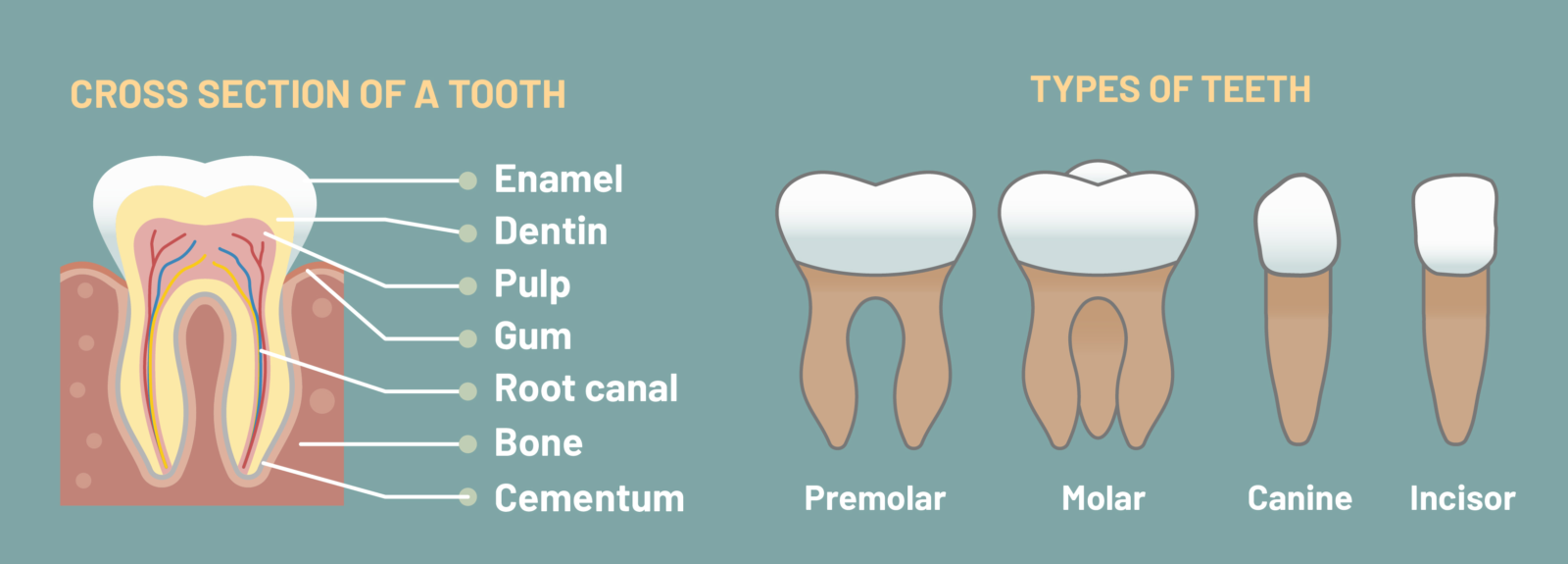Bruxism (also known as teeth grinding) is widespread, with an estimated 20% of adults affected to some degree. Teeth grinding, or clenching, can occur during the day (particularly when under stress) or at night.
Teeth grinding is not something that should be ignored. What seems harmless at first can eventually lead to significant dental problems, including severe jaw pain, headaches and permanent teeth damage. Thankfully, there are several minor, non-intrusive lifestyle adjustments you can make to help prevent long-term harm.
In this blog, we’ll break down practical teeth grinding treatments, with insights from our expert team, to promote better dental health naturally.
The Role of Diet in Teeth Grinding
Your dietary habits play a substantial role in all facets of your dental health, including bruxism. Certain foods can exacerbate teeth grinding by:
- Increasing muscle tension directly
- Increasing muscle tension indirectly (such as via increased cortisol levels)
- Disrupting your sleep pattern.
Identifying Trigger Foods and Beverages
Caffeine-rich drinks like coffee, tea and energy drinks are known to increase muscle activity and stimulate the nervous system, which can lead to increased tension and stress – common triggers for bruxism. Consider opting for herbal teas or decaffeinated beverages to lessen the frequency and intensity of teeth grinding.
Alcohol has long been considered a factor that might exacerbate teeth grinding episodes. While its relaxing effects can reduce stress initially, alcohol disrupts sleep patterns, particularly the healing REM phase. Its consumption can also stimulate the central nervous system, extending grinding duration and intensity during sleep. Try to avoid alcohol for at least 2-3 hours before you plan on sleeping.
Overconsumption of sugary and acidic foods and beverages can weaken your teeth, making them more vulnerable to the effects of grinding.
Foods to Incorporate
To support a healthy lifestyle, magnesium-rich foods like leafy greens, nuts, seeds and whole grains can be beneficial.
Consider sitting down for breakfast, with a soothing bowl of calcium-rich yoghurt topped with fresh greens. This not only sets a positive tone for the day, but these foods provide critical support for strong teeth, reducing the strain on your jaw muscles overall.
Adding anti-inflammatory foods like fatty fish, fruits, vegetables and herbs, such as turmeric and ginger, to your diet may help manage symptoms.
Foods to Limit or Avoid
As mentioned earlier, caffeine should be limited if you’re trying to alleviate teeth grinding. The stimulating effects of caffeine can intensify muscle activity and elevate stress levels.
Processed and refined foods contribute significantly to teeth grinding symptoms due to their high sugar content and low nutritional value. Limiting these foods can help decrease the severity of teeth grinding. Consider replacing them with whole foods like vegetables, fruits and grains, which offer more nutrients and support overall dental health.
Lifestyle Factors That Influence Teeth Grinding
Having discussed dietary triggers, it’s important to recognise that various lifestyle factors can also contribute to bruxism. Stress, anxiety and poor sleep quality are among the most common culprits.
Managing Stress and Anxiety
Chronic stress and anxiety can sneak up on us, tightening our muscles and often leading to the pesky habit of teeth grinding. One way to manage this is to embrace stress-reduction strategies.
Practising daily relaxation techniques not only eases muscle tension but also plays a fundamental role in reducing teeth gnashing. Consider techniques like deep breathing or mindfulness meditation, known for their effectiveness in calming both mind and body.
Incorporating daily activities such as practising yoga, painting or knitting can also lower stress levels significantly.
Improving Sleep Quality
Poor sleep quality can exacerbate bruxism, as teeth grinding often occurs at this time. To improve your sleep quality, prioritise adopting a consistent sleep schedule, limiting screen time before bed and ensuring your sleep environment is dark and quiet.
By establishing consistent sleep routines – such as going to bed and waking up at the same time each day, and disengaging from screens an hour before sleeping – research suggests your body will begin to realign its disrupted circadian rhythms.
Consider a calming bedtime routine. Experiment by winding down with a cup of soothing, low-caffeine herbal tea, while listening to some calming music . This ritual not only signals to your body that it’s time to relax, but also reduces stress – a common trigger.
Ensuring a comfortable sleep environment involves a few simple adjustments. Try using blackout curtains to block out disruptive light or selecting breathable, soft linen for ultimate comfort. Maintaining a moderate room temperature can help foster restful sleep, as can employing a white noise machine to minimise disruptions. These thoughtful tweaks can create a soothing haven that promotes a peaceful slumber.
Ensuring a Comfortable Sleep Environment
Create a sleep-friendly environment by keeping your bedroom dark, quiet and cool. Invest in a comfortable mattress and pillows that support proper alignment of your head, neck and spine.
Adopting a Relaxation Routine
Meditation and Deep Breathing
As mentioned earlier, meditation and deep breathing exercises can be an effective avenue to reducing stress. Imagine you’re seated in a quiet room, the soft glow of sunlight spilling through the window as you begin just five minutes of daily meditation. Feels nice right?
Even a short period of meditation can lead to deeper relaxation and long-term relief. Slowly, the minutes can increase as your comfort level grows, transforming these sessions into an essential part of your routine.
Regular Exercise
Regular physical activity helps to manage stress by releasing endorphins, which are natural mood lifters. Exercise can help to decrease tension, while promoting post-workout relaxation which, in turn, diminishes the incidence of teeth grinding. Additionally, exercise can improve sleep quality by helping to regulate sleep-wake cycles and alleviate insomnia symptoms, leading to more restful nights. It also supports overall well-being by strengthening the cardiovascular system, enhancing mental health and boosting energy levels.
Aim for at least 30 minutes of moderate exercise, such as brisk walking, cycling, or swimming, most days of the week to experience these benefits.
Professional Guidance and Treatment Options
While dietary and lifestyle changes can be effective in reducing bruxism, we highly recommend seeking professional guidance from your dentist or healthcare provider. They can assess the severity of your condition and advise you of additional treatment options if necessary.
From custom night guards to advanced therapeutic treatments, experienced dentists can provide you with solutions tailored to your personal circumstances. Affordable options exist to manage discomfort and mitigate long-term harm.
Contact our team and schedule a bruxism consultation today.
Embracing a Healthier Lifestyle for Better Dental Health
When examining dietary habits and lifestyle choices, certain simple adjustments can positively impact the reduction of teeth grinding. By incorporating specific dietary modifications and adopting stress management techniques, you can effectively lessen the frequency and intensity of this condition.
These natural solutions, complemented by professional dental guidance and treatment, help you achieve better dental health and overall well-being. Enjoy the benefits of a healthier, happier smile. You deserve it!









